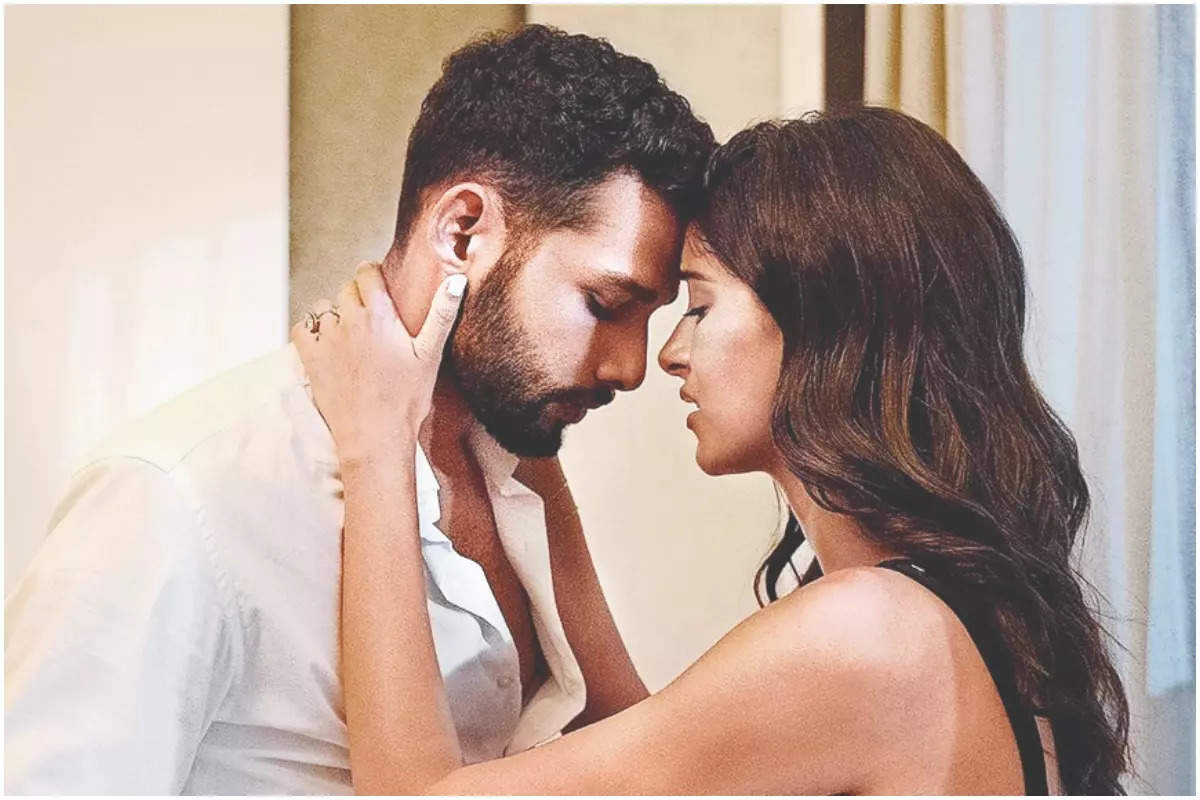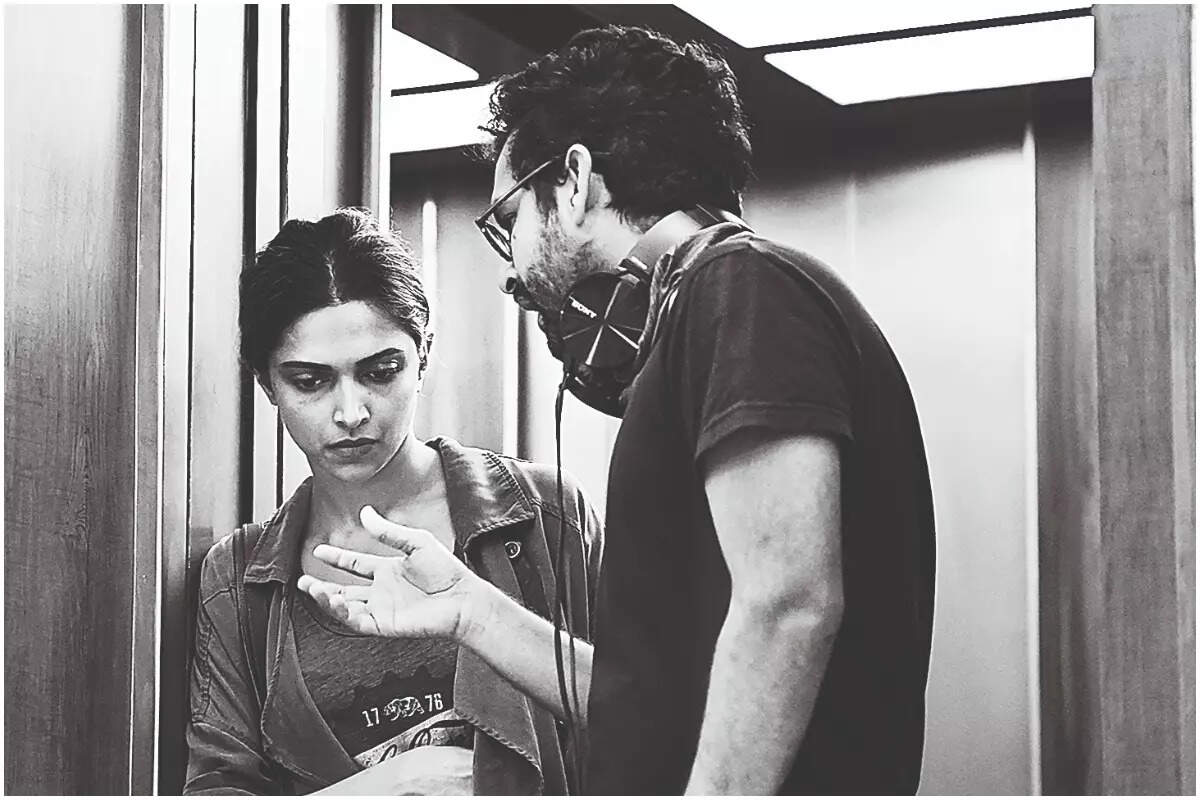
[ad_1]
Kapoor & Sons, and now, the upcoming
Gehraiyaan, an emotional and intimate drama that releases on Amazon Prime Video on February 11, seemingly dives into the deep end of love and relationships. And yes, it’s complicated. Read on…
From what it appears, the film delves with a certain maturity into the complexities and messiness that creep into a relationship. Has the attempt been to give a new voice to the way grown-up relationships and love is depicted on screen?
Yes, that was the intent from the word go. I had been thinking about the kind of oversimplified version of relationships we have been watching, and I felt that I wanted to make a grown-up film about grown-ups and see relationships from where I am today, at 40. I felt like all relationships came across like they were in their twenties. I constantly felt starved for stories that reflected more mature and complex relationships. That was a beginning point for me. I hope that comes across.
The last line in the trailer where Deepika Padukone asks Siddhant Chaturvedi, “Are we just messed up people,” and he turns around and tells her, “Haan, shaayad.” There is no pretence, it comes across with ease on screen, but at the same time, carries a lot of weight and depth. In our cinema, we seldom see characters baring their flaws and broken selves. And, of course, showing infidelity on screen has its challenges. Were there any moments of uncertainty about how it would unfold, what would be the reactions and how far could you go with the idea?
You are right, it carries a certain amount of weight and also gives you an insight into these characters. These are characters in their early thirties who are carrying the weight of their past, and they are aware of it. We wanted to make a film about relationships in your early thirties, and you know, physicality, your body and desires play a huge part. We have shied away from it, including myself, in my first film
Ek Main Aur Ekk Tu. This time around, it was very important for me to make sure that I address intimacy in a way that comes from these characters and helps take the story forward. I was scared and shy, and I started reading a lot and understanding how it was being done in the West.

And then, the idea of getting an intimacy director on board came about?
Yes, I came across the idea of an intimacy coordinator in a post #MeToo world, and then, I called my very dear friend Dar Gai, and I brought her on board to collaborate. It made my life easy as we sat down and chalked out a process, routine and workshops. Those things are no different than a trust-building exercise. You create a safe environment for people to feel vulnerable, you create boundaries and understand consent. I was keen to also take a step in the right direction as a filmmaker and try to reform the system in whatever small way we could. As we do more grown-up storytelling, these things like having an intimacy director on board will become a more integral part of filmmaking. Right now, we are talking about it as it’s still new. My hope is to normalise it, so it isn’t a conversation.
In a film where the core lies in the interplay of emotions, I would assume that a lot of spontaneity unfolds on set. Even if there is a very well-etched-out character on paper, eventually, in front of the camera there could be ample room for improvisation, right? That, I guess also explains why your actors have been saying that you are a director of many takes…
Honestly, I am ambitious about where I’d like to see my actors go in their scenes. I want them to go to places where I haven’t seen them before, and sometimes, that doesn’t happen in take 5 or 6. I love this David Fincher (American director) quote where he talks about how we make these huge sets, we write our scripts, actors come and we put them up in hotels, and we are spending thousands of dollars in a day, and it’s not so that everyone can quickly run back. No, you do that so that you have an environment where you can come closest to the best version of the scene and story. I do have my own OCD sometimes, but I also know that my actors are workhorses. They wouldn’t be satisfied if they didn’t get to a place where they felt that they justified the scene. I have a process that is demanding, and I am not apologetic about it. It’s not like we are repeating the same take, we are trying to arrive at a take that is a little more nuanced and textured, and those are the things that I love.
Do a lot of your own life experiences go into writing such characters that are deep and complex?
For me, filmmaking is a way of exploring myself. And I think it would only be a half-interesting profession if I didn’t use the movie to do that for me. It is so fascinating that we do not do 9-5 jobs, instead, we are in a profession that makes us delve deeper into our own psyche and feelings. So, a part of the reason and as hard as it is to come up with a story, I really feel that the most rewarding part of making a film is that it changes you. It has an impact on your life, it changes who you are and makes you come to question things that you didn’t even know you had in your mind. I don’t know if you will ever find an answer to them, but it makes you reflect. I am not saying that you have to make dramas and serious films, but it’s a privilege to know that you have a job that pushes you to delve deeper.

Do you think that in the times ahead, the audience will be discerning about the kind of films that they want to watch on the big screen and what they want to view from the comfort of their homes, and ultimately, that will dictate which medium a filmmaker will choose to release their film?
I feel what will happen is the method of success will change. Right now, we are extremely seduced by the idea of box office as the metric of success. We need to redefine that. A lot of people are still running after box office numbers, as that gives you a clear idea of how the film is received. Some people don’t want to go the OTT way, and they are like… ‘Oh, it should not look like a small film.’ Also, I think that this notion that a big film is for the big screen and a small film is for the small screen — that is going to change.
There is also a notion that big stars are meant for the big screen. However, that perception seems to be evidently changing course.
Look, we know that the industry will not be how we see it today in the next five years. Instead, the idea is not to fight it, the idea is to open ourselves to change. Am I somebody who has a clear vision of what it will be? No. I think we are all taking a journey together in that direction, and I am 100% open to seeing how things change and the conversations that happen around redefining success. So, I want to be part of this change that is happening. That is what matters, not the size of the screen or the format.
Your film apparently belongs to the domestic noir genre. Now, we haven’t heard of that in the context of our Indian cinema…
I love that genre; it is my go-to thing for movies, at least it was. People are used to putting things in a box and understanding the label before anything, especially, if you are trying to do something that steps out of the conventional. So, it becomes your responsibility to define it for them. When I am pitching a movie, I always come up with these interesting terms that make people go and look up online (laughs!). It is part of my strategy, and it has done well so far. Is this film domestic noir? I would love to know your definition once you have watched it.
.
[ad_2]
Source link